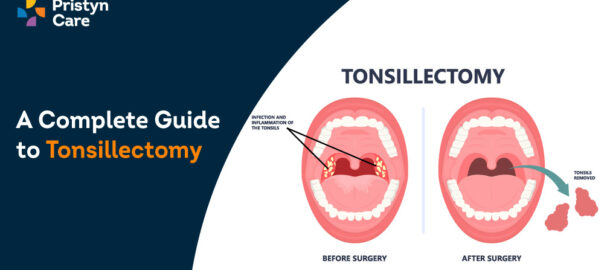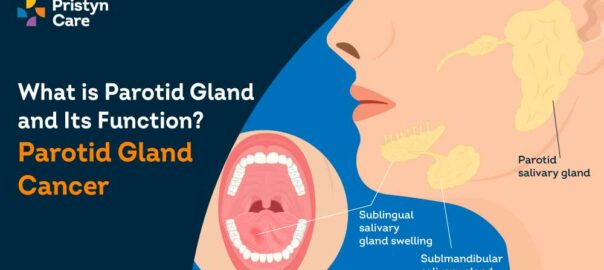![]() Views: 840
Views: 840
Sinus Infection: Causes, Symptoms, Diagnosis & Treatment
We have all experienced blocked nose or facial pain that intensifies when you bend over or lie down. If you or your child suffers from a frequent common cold, dental pain, fatigue, etc., there is a high probability that you or your child is suffering from sinusitis or ...
ef="https://www.pristyncare.com/disease/sinusitis/">sinus infection. Read moreIn addition, specific allergies, pollutants, dust, etc., contribute to acute as well as chronic sinusitis, which can result in long-term health problems. .
Dedicated Support at Every Step!
Our Doctors are available 24 hours a day, 7 days a week to help you!
Before understanding how sinusitis affects the respiratory organs of the body, let us first try to understand what sinusitis is?
Healthy sinuses are air-filled cavities present between the eyes, behind the cheekbones, in the forehead, and the base of the skull. Sinuses produce mucus, which keeps the inside of your nose moist and protects us against dust, allergens, and pollutants. However, due to recurrent viral or bacterial infections, the sinuses get filled with fluid that eventually obstructs the nasal passage.
Sinusitis is one of the most common diseases in India, which is usually caused due to allergies, rhinitis, nasal polyps, deviated septum, etc. Therefore, the treatment of sinusitis is not only important, but it is also the right choice. FESS (functional endoscopic sinus surgery) is the surgical procedure to treat sinusitis by removing any obstruction for improved breathing.
Also Read: Benefits of FESS Surgery
Table of Contents
Causes of Sinusitis :
Sinus infections or sinusitis causes when fluid builds up in the air-filled pockets in the face (sinuses), which allows germs to grow. Sinusitis is inflammation, and the most common cause is a virus, but bacterial infections can also lead to sinusitis.
The bacteria are often already in the nose but don't cause an infection because they are held in check by the body's natural defences. If the body's defences (e.g., sinus drainage, or immune system) are not working properly, the bacteria can cause a sinus infection.
There are several other things that inflame the nose can also cause sinusitis. For example, hay fever and other allergies increase your chances of getting sinusitis.
No Cost EMI, Hassle-free Insurance Approval
How do I know if I have a Sinus Infection?
Sinus infections are not that hard to distinguish. A stuffy nose followed by a sore throat, cough, and a reduced sense of smell are some of the early signs of sinus infection. However, sinusitis can be acute or chronic, depending on how long you are experiencing the symptoms.
Acute sinusitis usually does not cause difficulty breathing through the nose and is generally resolved within 4 weeks. However, chronic sinusitis can potentially last for 8 to 12 weeks or even several years if left untreated. Here are some major sinusitis symptoms that can ascertain the possibility of sinus infections -
- Facial pain and pressure
- Ear pressure
- Bad breath
- Headache
- Fatigue
- Postnasal drainage
- Nasal inflammation
- Aching in your upper jaw and teeth
- Pain and swelling around eyes, cheeks, nose, or forehead.
- A congested and blocked nose causes difficulty in breathing.
Is it Really Sinusitis? How to Diagnose Sinusitis?
Symptoms of sinusitis can differ from patient to patient depending on their medical condition, the severity of the infection, type of infection (whether it’s viral or bacterial), etc. Therefore, it is necessary to consult the doctor for a complete diagnosis and to determine the cause of the blocked nose. Several medical professionals use advanced diagnostic techniques to distinguish between acute and chronic sinusitis. Some of the diagnostic tests include -
- Imaging tests - Extensive tests such as x-rays, CT scans can help produce detailed images to detect any inflammation or physical blockage due to polyps, tumors, or other allergens that may be responsible for inflamed sinuses.
- Nasal endoscopy - The ENT specialist inserts a thin, flexible tube that is attached to the fiber-optic light in the nasal opening to examine any deviation or obstruction due to polyps, tumors, etc.
- Nasal and sinus discharge samples - The surgeon collects a sample of nasal discharge via swab test to determine if the primary cause of sinus infection is bacterial or fungal.
- Tests for existing allergies - An allergy is usually a common cause of nasal obstruction. ENT specialists may recommend allergy skin tests to detect the presence of any allergens.
How to Treat Sinus Infection?
Sinus infections are a result of inflammation of the tissues lining the sinuses. The ENT specialist aims to remove any obstruction in the nasal passage to improve breathing. To treat acute sinusitis, doctors usually recommend medications, antibiotics, nasal decongestant sprays, etc. It is important to complete the full course of antibiotics for the given time period, even if the symptoms are reduced.
Treatment of sinus infections can be done via surgical and non-surgical procedures depending on the type of infection and if the sinus infection is acute or chronic. Surgical methods to treat sinus infections include:
- FESS
- Balloon sinuplasty
- Turbinate reduction surgery
- Sinus ostial dilation surgery
Treatment for Acute Sinusitis
Several home remedies, such as using warm compresses on the nose or forehead, can help with sinus infections at home. Along with that, moistening sinus cavities by breathing hot water vapors can cause relief. You can also go for immunotherapy or allergy shots to reduce the body’s reaction to specific allergens and improve sinusitis symptoms. It is important to consult with the doctor before using any medication to reduce the chances of side effects.
Treatment for Chronic Sinusitis
If the diagnostic tests reveal the cause of infection as viral or bacterial, then the ENT specialist is likely to prescribe medications or suggest home remedies. However, in the case of viral infections, the doctor can suggest a course of antibiotics. If the home remedies or medication prove ineffective against the symptoms of sinusitis, then most ENT specialists recommend a surgical procedure called FESS. Functional endoscopic sinus surgery or FESS is a minimally invasive procedure that offers long-term health benefits. Since sinus infection can also be caused due to a deviated septum, the ENT surgeon will perform a consecutive septoplasty to correct the deviated nasal septum.
Also Read: Correlation between a deviated septum and chronic sinusitis!
Let us dive deeper into the domain of FESS and understand what to expect during the surgery.
FESS or functional endoscopic sinus surgery is a surgical procedure that aims to restore the normal functioning of the nasal passage and improve the breathing quality. The patient is administered with local or general anesthesia before the procedure for a minimal pain experience. The surgeon then proceeds to make a minute incision on the septum of the nose to insert an endoscope. This medical equipment is attached to a light and camera on the other end to provide visuals for the surgeons so they can examine the condition of the sinuses. The surgeon will remove any blockages, tiny sections of bone, and polyps from the sinuses if any.
Some surgical procedures involve a small balloon to enlarge the sinuses and remove the obstruction. Along with that, the doctor can also suggest septoplasty to correct the nasal deviation for improved breathing. Septoplasty is done to remove any obstruction in the nasal cavity due to the inclination of the septum towards either side of the nostril.
Conclusion
Sinusitis or sinus infection is one of the most common diseases globally. Sinus infections affect nearly 24 million people annually, making the disease more common than diabetes, asthma, and coronary heart diseases. Many people choose to ignore sinus infections, but prolonged sinuses can have long-term health problems. Therefore it is important to get timely treatment for better breathing and improved sleep. The doctor will examine your symptoms and suggest the best course of action for an effective procedure.
If the sinus infection is acute, then non-surgical methods can help manage the symptoms. However, if your sinus infections are recurrent or chronic, surgical methods are preferred for a permanent solution. Consult with our ENT specialist for a thorough diagnosis and the best course of action.











